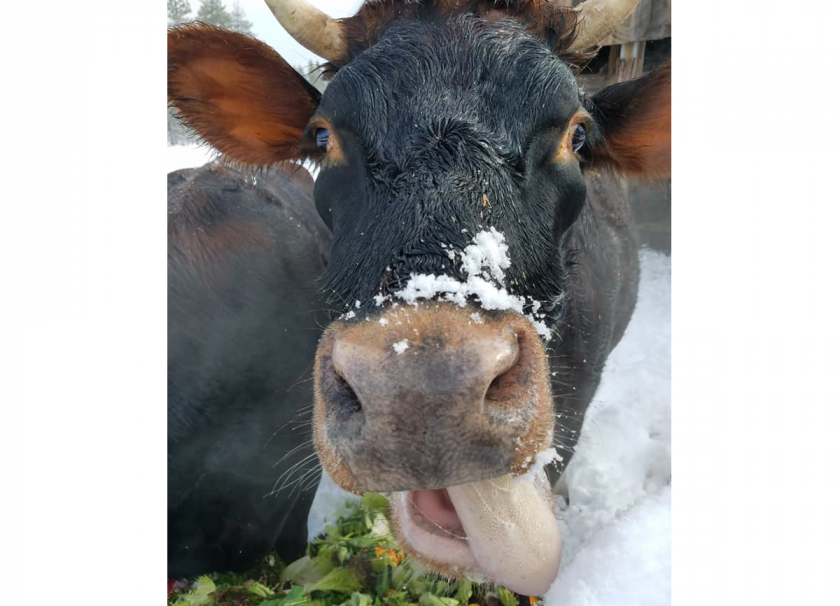
Food waste at the Co-op
By Rianna Koppel, Sustainability Coordinator
How many times in the past month have you reached back in the fridge to snack on some fresh strawberries only to discover… mold?! In the United States, 40% of food is wasted every year. Luckily, how we address food waste can have a major impact. According to Paul Hawkin’s Drawdown, reducing food waste is #3 on the list of best ways to reduce carbon dioxide emissions. At the Co-op, we use the EPA’s Food Recovery Hierarchy as a guide to bettering our own practices.
Source Reduction and Reuse
Ever wonder what happens to a carton of eggs with a cracked bunch? At the Co-op, we reuse these eggs for your breakfast. Deli staff will sort and reuse peaches, strawberries, bananas, and more for bakery goods, smoothies, and cold bar desserts. Imperfect produce can be used for vegetable stock, hot bar meals, or the salad bar. Every day at 8 pm, the Deli hot bar price is reduced to $8.95 per lb to reduce waste.
Feed Hungry People
After resourcing useable food, staff glean the rest. There are several places behind the scenes for employees to discover their dinner. On a regular day, a Co-op employee could glean a few slightly bruised apples, a damaged can of garbanzo beans, a leaky carton of goat milk, and a piece of cornbread from the night before.
Additionally, at the end of every day except Christmas, the Co-op is visited by a special guest: the Ashland Food Angels. The Angels deliver food to the Ashland Emergency Food Bank, which provides emergency food supplies, without charge, to individuals and families in the Ashland/Talent area who would otherwise go hungry.
In total, throughout every year at the Co-op, about 22,000 lbs of healthy, edible food are diverted from the landfill and given to those in need.
Feed Animals
There is one more special guest that visits the Co-op every day - Crack o' Dawn Farm. They pick up several large barrels of food scraps to deliver as fodder for the animals. The scraps are given to goats, cows, and pigs. Deli and Produce staff collect these food scraps for the farm, making sure there are no rubber bands, paper wrapping, or metal twist ties that could injure the animals.
Composting
There are two things that goats and pigs can’t eat: coffee grounds and eggshells. These are the two main components for our compost stream. A local farmer picks up these barrels weekly to add to his compost pile.
Landfill
The last stop on our journey is the landfill. Right now, the Co-op diverts over 80% of our waste, which is a strong step towards our goal of being zero-waste.
Through our practices and commitment to zero waste, we can make an impact in our community. Every time you choose to eat at the Co-op, you are choosing to support local farmers, our staff, and families in need of fresh, healthy food in Ashland and Talent. Instead of food wasters, we can count ourselves as abundant food innovators.
More Co-op News

Meet Board of Director Julie O'Dwyer
When not working on Board of Director efforts, my profession is an Interior and Building Designer. I own the Ashland Design Studio, located in the Historic Railroad District, and have a design services studio there - JulieO Design. I have been in the architectural design business my whole life; from crawling around my father's architectural studio to traveling around the world working on buildings large and small to now having created my own niche in the local building community. I took a few years off this path to own and run Tease Restaurant here in Ashland.
Nourish Your Family and Fight Hunger
The holiday season is upon us. Amidst the shopping frenzies, family gatherings, and parties it can be hard to remember this is also a season of giving. That’s why we want to make it easy for you to give back. So easy that it’s as simple as doing your everyday grocery shopping. You can nourish your own family and help fight hunger in the Rogue Valley.
For the month of November, we are once again teaming up with Smart Chicken® for the Smart Chicken® Smart Giving program.
Here’s how it works.
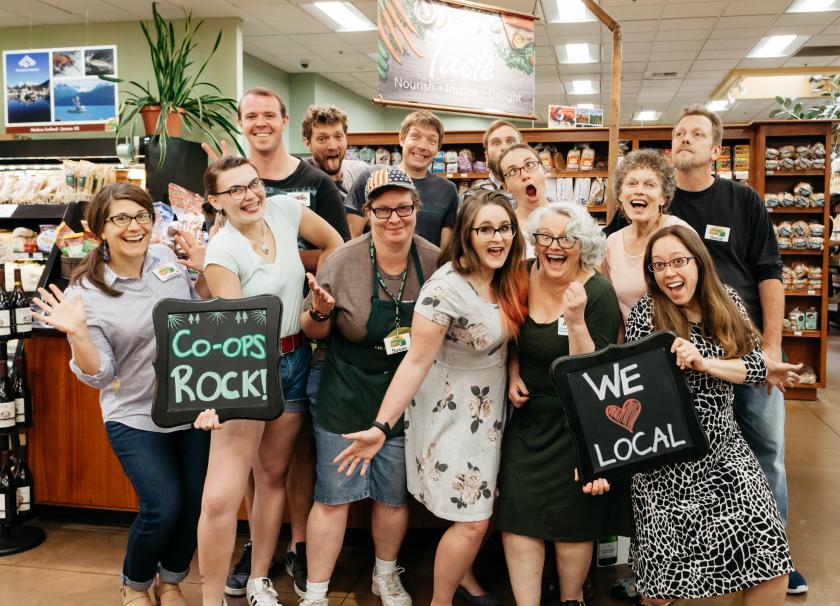
5 Reasons to Love Co-ops
By Laura Pfister, Media Coordinator
October is National Co-op Month, so what’s the big deal? Being a co-op is special. Yes, we know we are biased, but being a cooperative enterprise means we do business differently. We don’t have a single owner living on their private island drinking margaritas all day without a care in the world. We are owned and governed by you, our 10,000 members. We share the burden in hard times and share the benefits in the good times. We put people, the planet and our principles before profit.
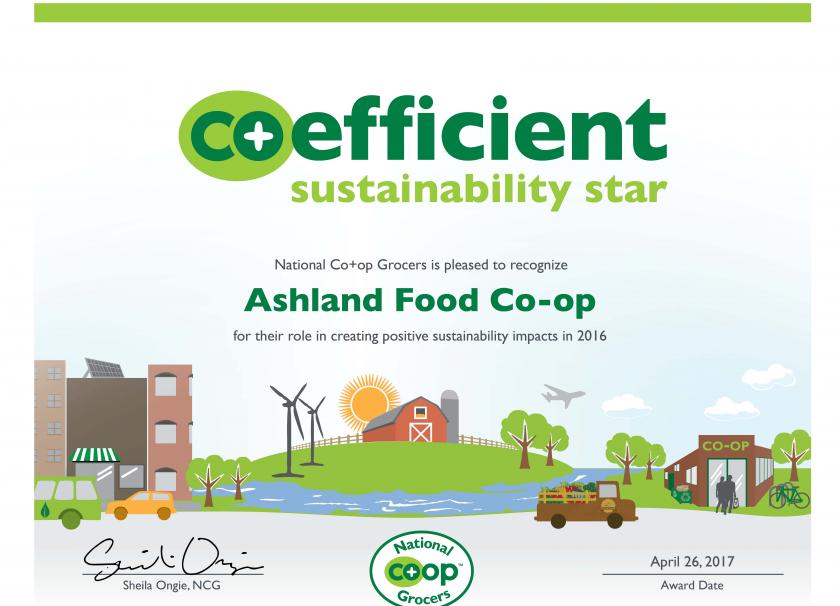
From the General Manager's Desk
By Emile Armarotico
This spring, National Co-op Grocers recognized Ashland Food Co-op as a Co+efficient Sustainability Star for our excellent sustainability efforts.
Our Sustainability Vision aims at being carbon neutral by 2030. We’ve taken a great stride toward this by installing a 39 kilowatt solar electric system on our rooftop with the capacity to generate approximately 7% of our electricity usage. The cost was partially offset by a $27,000 REAP (Rural Energy for America Program) Grant.
Local Starts at the Co-op
When we say local, we mean local. We source our local goods from within 200 miles of the store. By purchasing goods from local producers, we aim to create and maintain a healthy local economy and support family farms. What could be better than helping your community by buying local goods?
With all the local products that we offer, it’s hard to pick a favorite. But that’s exactly what we asked our staff to do. Here are some of their go-to local eats.
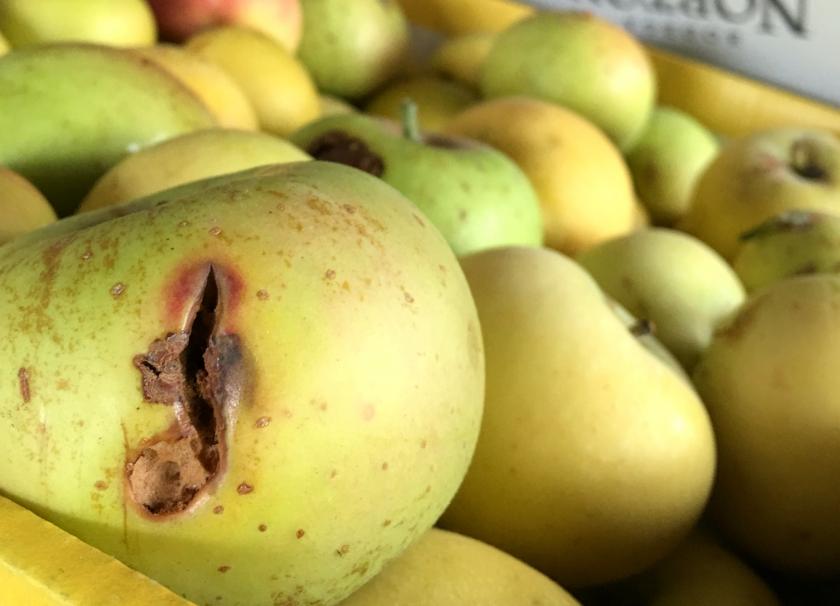
Your Fruit. Your Cider.
How often can you browse the shelf at your neighborhood grocery store, see a bottle of hand crafted, local cider and say, “Hey, I help make that!” Well, at the Co-op you can.
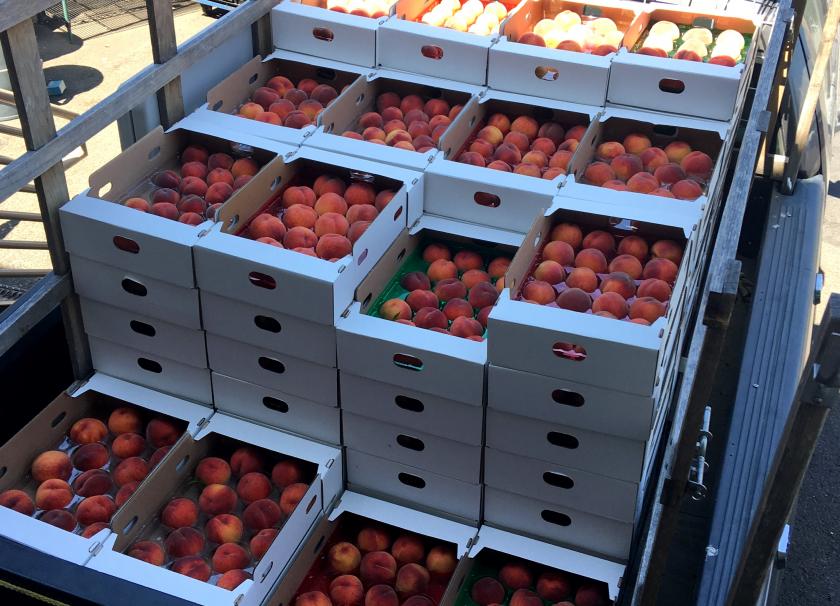
Millions of Peaches, Peaches for Me
By Laura Pfister, Media Coordinator
Many of us wait all year for this moment. We spend the winter months dreaming of a certain fuzzy stone fruit, its sweet juices dripping from our face and the buttery golden pie crust those yellow-orange slices will inhabit.
Good news! The wait is over. That local, sweet orb of sunshine has finally arrived. That’s right. Rolling Hills peaches are here!

2017 Board Election Results
We're Sustainability Stars!
Deep in our hearts we've always known we were sustainability stars, but now we have an award to prove it.
We recently received a Co+efficient Sustainability Star award from National Co-op Grocers (NCG) recognizing our positive environmental and community impacts.
Co+efficient, NCG’s sustainability program, measures social, environmental and local economic impacts from participating food co-ops across the country.
Give Where You Live
It’s the most wonderful time of year! Yes, we know that phrase is generally reserved for the holiday season. But for us, this truly is the most wonderful time of the year. It’s OUR season of giving.
Dine In and Bike Your Way to Savings
Did you know that approximately half of our landfill waste stream is composed of Deli trash? A significant part of that is “to-go” containers, which are sometimes used for dining in and don’t end up “going” very far at all.
Sustainability matters in everyday actions and we want you, our customers, to help us reduce unnecessary waste and make the most ecologically sound choices possible.

Participate in YOUR Co-op!
Spring Picks
The sun is (mostly) out and the weather is finally getting warmer. That must mean summer is right around the corner, right? We sure hope so. We’re ready to grill, soak up some sun and enjoy the many fruits and vegetables that are in season. Our Floral Coordinator, Rachel Chastain, shares some of her favorites.

Be the Sustainable Change
By Laura Pfister, Media Coordinator
Sustainability is not a new concept at the Co-op. It has always been part of our DNA. We’ve been using sustainable business practices before it was the “cool”, “responsible” thing to do. In fact, the Co-op was founded 45 years ago largely on the principles of sustainable, local organic food production as an alternative to modern industrial agriculture.
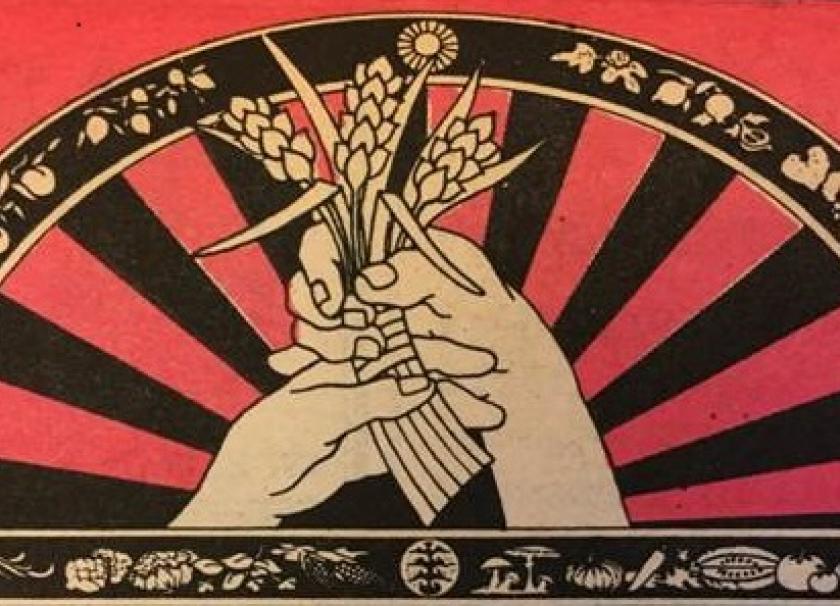
A New Look
By Laura Pfister, Media Coordinator
For 45 years we’ve been loving local and fostering community. Throughout our almost half a century history, our identity and logo has gone through many iterations.
Some of you might remember the logo above from our newsletter in the early 1980s.
As we’ve done multiple times throughout our history, it’s time to refresh our brand and launch a beautiful, new logo to take us into the next decade.
